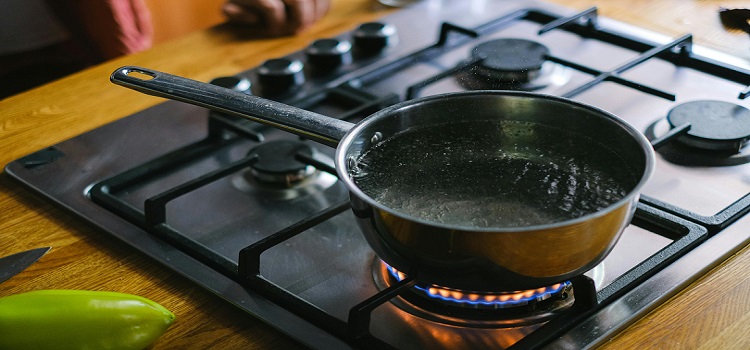As an Amazon Associate I earn from qualifying purchases.
Does Silicone Melt in Boiling Water? Let’s Dive In!
Silicone has become a kitchen superstar thanks to its heat resistance, flexibility, and non-stick qualities. Whether you’re whipping up a batch of muffins or using a silicone spatula, you might wonder: Does silicone melt in boiling water? This guide will provide you with all the essential information on this versatile material while sprinkling in some humor along the way. So grab your favorite silicone utensil, and let’s find out if it can handle the heat!
What is Silicone?
Silicone is a synthetic polymer made from silicon, oxygen, carbon, and hydrogen. It’s found in various forms, including kitchenware, bakeware, and even sealants. Silicone’s unique properties make it heat-resistant, durable, and flexible, making it a popular choice for cooking and baking.
Heat Resistance of Silicone
One of the standout features of silicone is its impressive heat resistance. Silicone can typically withstand temperatures ranging from -40°F to 500°F (-40°C to 260°C). This means that most silicone kitchenware can handle the high temperatures of baking, cooking, and even boiling. However, does this mean it’s impervious to all heat?

Can Silicone Melt in Boiling Water?
No, silicone does not melt in boiling water. Most silicone products can withstand boiling temperatures without melting or degrading. However, there are some important considerations to keep in mind:
- Quality Matters: Ensure you’re using high-quality silicone products that are specifically labeled as food-grade and heat-resistant. Low-quality silicone might contain fillers that can compromise its heat resistance.
- Continuous Exposure: While silicone can handle boiling water, prolonged exposure to extreme heat can affect its integrity over time. If you’re using silicone cookware or utensils for long periods in boiling water, it’s good to monitor them.
Benefits of Using Silicone in Hot Water
| Benefit | Description |
|---|---|
| Non-Stick | Food releases easily without sticking, even in boiling conditions. |
| Durability | High-quality silicone won’t warp, crack, or break under heat. |
| Easy to Clean | Silicone is dishwasher safe and easy to hand wash. |
| Versatility | Perfect for boiling, baking, steaming, and more! |
| Lightweight | Easy to handle, making cooking a breeze. |
Tips for Using Silicone in Boiling Water
- Avoid Direct Flames: Silicone is heat-resistant but not flameproof. Keep it away from direct contact with flames or intense heat sources.
- Check for Damage: Before using silicone in boiling water, inspect it for any signs of wear or damage, such as cracks or discoloration.
- Mind the Food: If boiling food in silicone containers, ensure the food doesn’t contain excessive oil or fat, which can increase temperatures.
Frequently Asked Questions (FAQs)
- Can all silicone withstand boiling water?
Generally, yes! High-quality silicone can withstand boiling temperatures, but always check for labels indicating heat resistance. - What happens if silicone is boiled for too long?
While it won’t melt, prolonged boiling can degrade the silicone over time, affecting its elasticity and durability. - Can I put silicone bakeware in boiling water?
Yes! Silicone bakeware is great for steaming and can handle boiling water, making it versatile for various cooking methods. - Is silicone safe for cooking at high temperatures?
Yes, food-grade silicone is safe for cooking at high temperatures and does not release harmful chemicals when heated properly. - Can silicone utensils be used in boiling soups?
Absolutely! Silicone utensils can safely stir and serve food in boiling soups without melting or affecting the flavor. - Does silicone change flavor in boiling water?
High-quality silicone does not absorb flavors or odors, so your boiling water should remain unchanged. - Can I microwave silicone that’s been in boiling water?
Yes! Silicone is microwave-safe, so feel free to transfer it from boiling water to the microwave without worries. - Are there different grades of silicone?
Yes, silicone comes in various grades. Food-grade silicone is safe for cooking, while industrial-grade silicone is not suitable for food contact. - How do I clean silicone after boiling?
Silicone is dishwasher safe and can also be easily cleaned with warm soapy water. Avoid using abrasive cleaners that can scratch the surface. - Can I use silicone in a pressure cooker?
Yes, silicone can be used in a pressure cooker, but ensure the silicone is rated for such use and doesn’t have any exposed metal parts.
Conclusion
In conclusion, silicone is a fabulous and versatile material that can withstand the heat of boiling water without melting. Whether you’re using silicone bakeware, utensils, or molds, you can confidently cook, bake, and boil without fear of damaging your favorite kitchen tools. Just remember to choose high-quality silicone and monitor it during extreme heat exposure. Now, go ahead and whip up those delicious meals without worrying about your trusty silicone products—your culinary adventure awaits!
And who knows? Maybe next time you’re boiling pasta, you can toss in some silicone humor, like, “I’m just here for the boil and the fun!” Happy cooking!
As an Amazon Associate I earn from qualifying purchases.
Leave a Reply